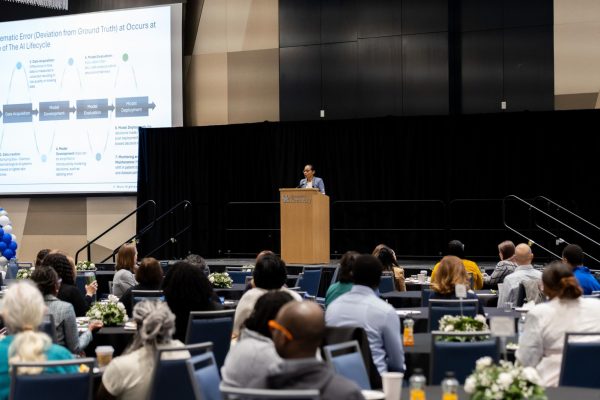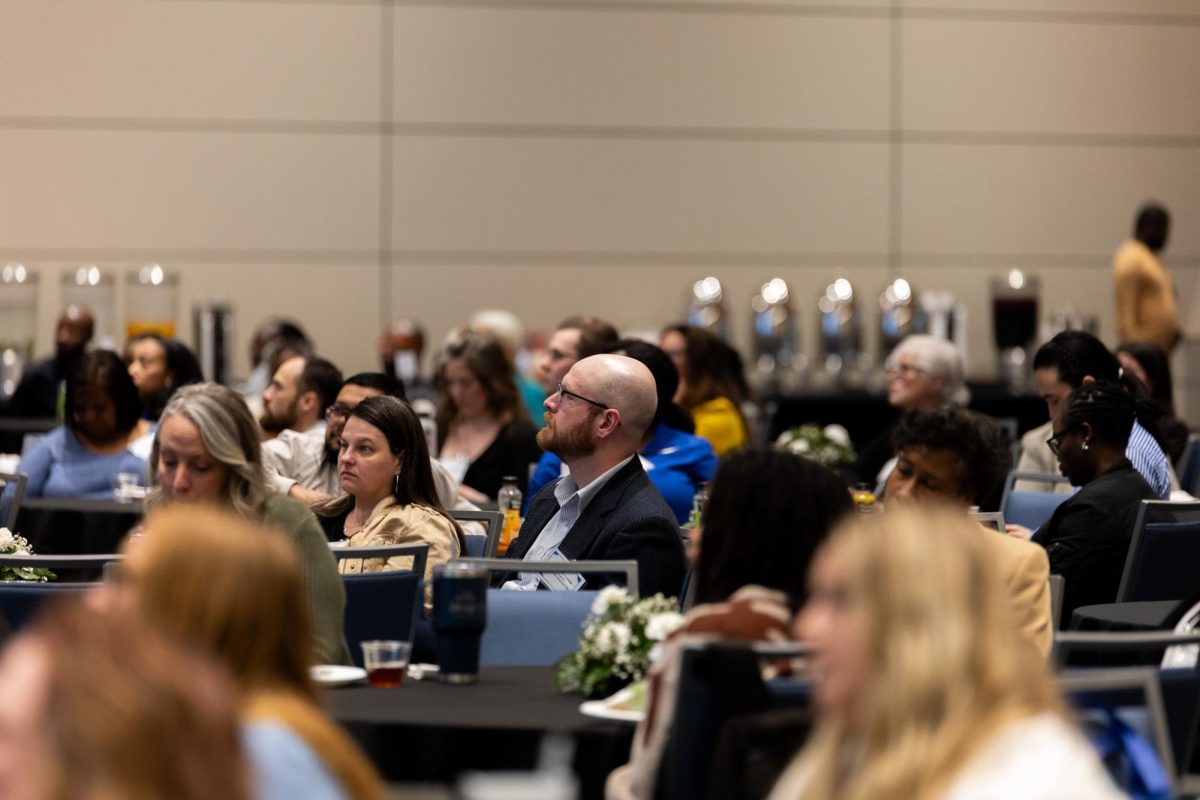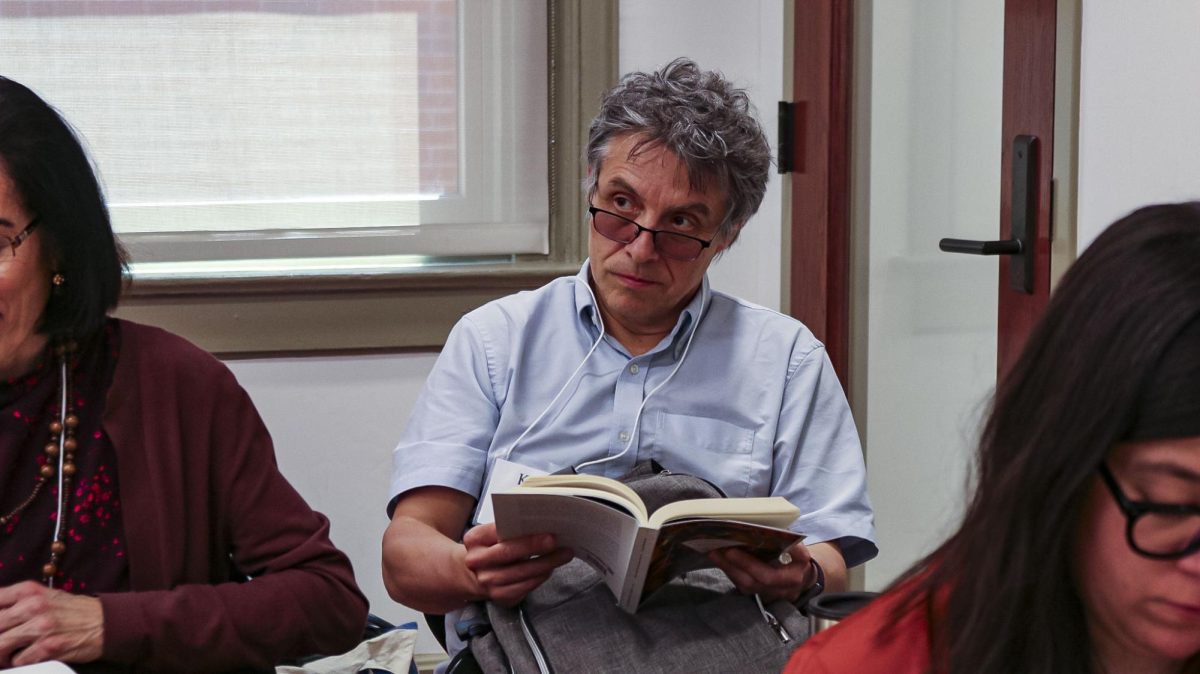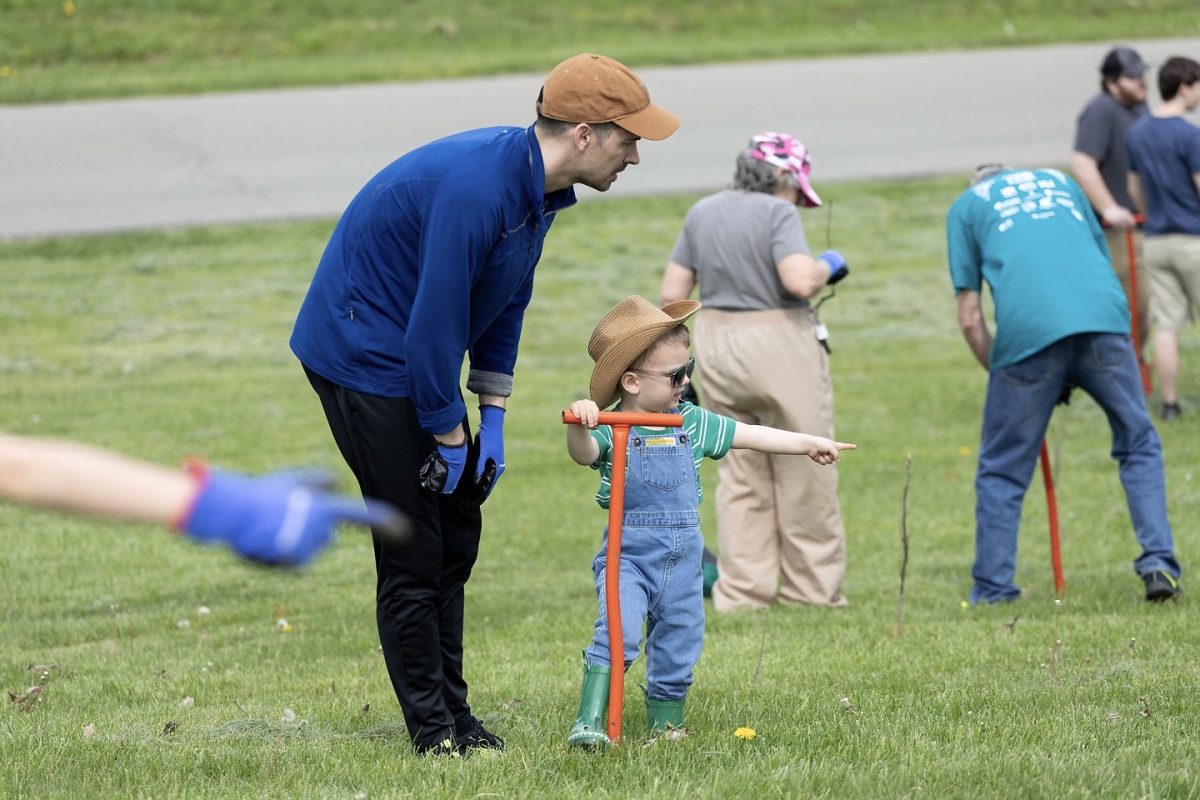University of Kentucky organization UNITE hosted a celebration of research and brought attendees together with a message of perseverance and staying informed in the media.
Held on Thursday, April 17, at the Gatton Student Center, the event featured multiple keynote speakers, including Vanderbilt University Associate Professor, Chezare A. Warren and CEO and Co-Founder of Equality AI, Maia Hightower.
According to event attendee, Freida Downey, the social themes presented during the event were important for younger generations to learn about.
“It’s these outside social norms that can compress people and keep people in a box,” Downey said. “I hope the young people can take away that in modern-day times, just be yourself, your authentic self.”
The event also featured ABC News Correspondent and “What Would You Do?” host John Quiñones as a keynote speaker.
Director of UNITE Research Priority Area, Danelle Stevens-Watkins, said Quiñones’ message resonated with her and UK.

“I think that the values that Mr. Quiñones highlighted about the importance of hard work, the importance of education, the importance of doing the right thing, and showing positive character strongly align with many of us here at the institution,” Stevens-Watkins said.
Quiñones, the headline speaker for the event, said he was happy with his fellow hosts for their work promoting diversity, equity, and inclusion values, something he said is critical yet increasingly controversial.
Quiñones encourages speaking up for what’s right and making moral decisions, themes that he believes are essential in today’s society.
“Let’s face it, silence is complicity,” Quiñones said. “We have to raise our voices, I think louder than ever these days, because these are tough, divisive times in America.”
In an “era of misinformation,” Quiñones said staying quiet is no longer neutral and can worsen the issues society faces, saying the responsibility of the press is to expose injustice and promote accountability.

“The journalist is the person with a little candle or the little flashlight,” Quiñones said. “They can shine it on the darkest corners of the room to illuminate injustice, to illuminate corruption, to illuminate human rights violations, civil rights violations.”
Quiñones said his experiences from migrant farm work have helped his decades-long journalism career and personal journey with all he’s accomplished.
According to Quiñones, the idea for “What Would You Do?” started because he wanted to “hold up a mirror to American society” and shed light on issues in the United States.
A journalist himself, Quiñones said he understands why the press is a vital function for a nation to thrive, saying by shedding light on hidden truths, the press can help people understand that democracy remains transparent.
“It’s for the good of America, it’s for the good of our society to know what’s going on,” Quiñones said. “If you depend just on government, that’s not good enough.”































































































































































